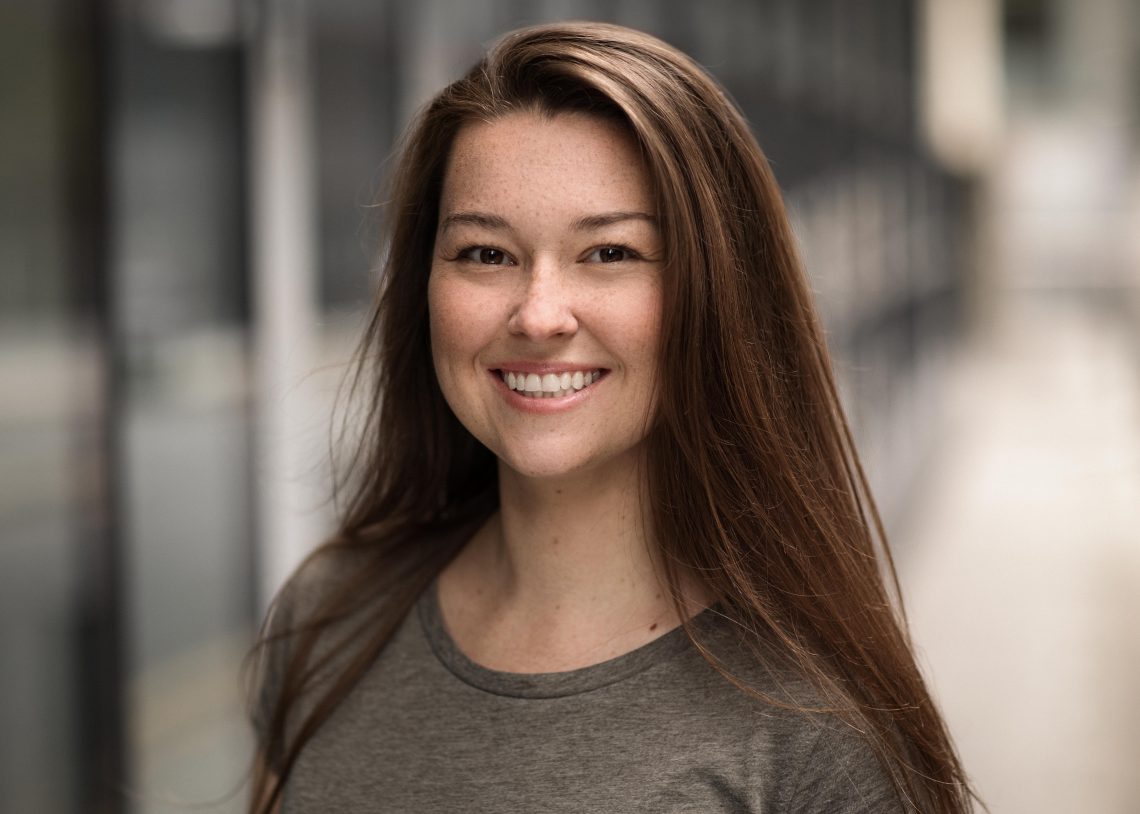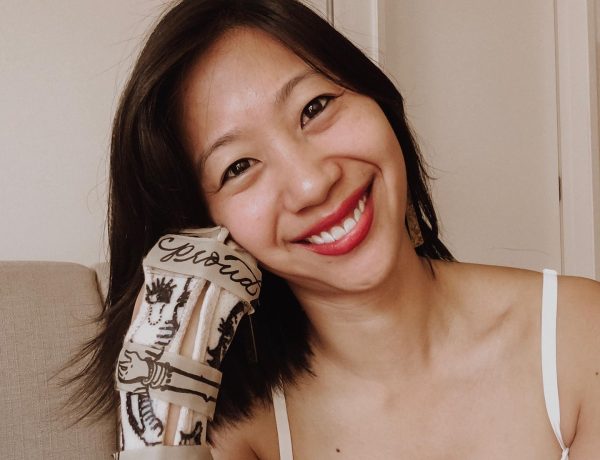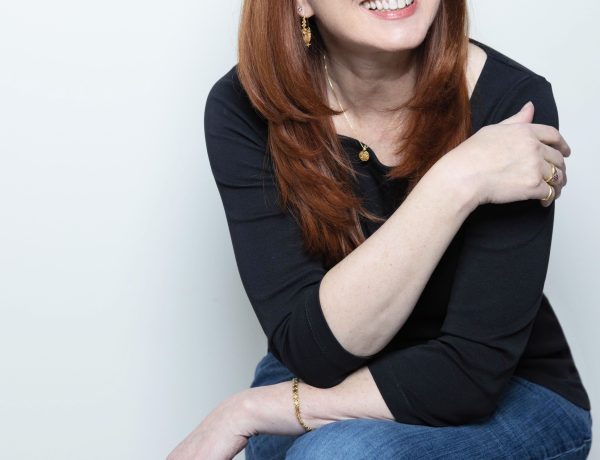Filmmaker Anna Czarska was not diagnosed with autism until adulthood, a delay that only compounded the sense of loneliness that they experienced throughout their childhood. “It was difficult to grow up not knowing I was autistic. I always felt different than the other kids, expressed myself differently and generally didn’t feel like others were on the same wavelength. Essentially, I felt I was an alien, a different species. This was incredibly isolating and depressing. I was misdiagnosed as a young person and told that my brain chemicals didn’t work correctly and that is why I was experiencing what I was,” they recall. “Thankfully, my mother refused medication for the other disorders that we were being heavily pressured to take. I grew up thinking I was broken and that there was something wrong with me. So many times people could not understand why I felt hesitant about something or why something that didn’t phase them caused me to freeze up or cry–like calling a shop to ask if they had an item in stock. I spent most of my life trying to manage social relationships and failing because I did not have the understanding nor vocabulary to explain to someone why and how I am different. I just knew I was. My life could have been so much brighter if only I had known earlier.”
When the determination was finally made, their feelings were a jumble of vindication and outrage. “It was a whirlwind. Such a long journey to even get the assessment and once that validation hits you, it’s a thousand emotions all at once! I didn’t expect to, but I cried the moment the words left my assessor’s lips. I remember being angry for weeks about how it has taken this long to be assessed. After all of the psychologists I had seen as a child, not one thought to assess me for autism despite all the signs. I suppose back then, there was not enough research and most of it was based on males. I felt the system had failed me and likely so many others. This is a large reason why I made Mildly Different. I did not want this to keep perpetuating for others. Understanding that I had a different neurotype really helped me. I finally had the language to explain to others who I was inside and why I didn’t absorb, express or process things the same way most did. I also felt part of something valuable: a community of people who were so much like me! A place where I didn’t have to feel alone and strange. I wanted to show others the misconceptions autistic people face, who we truly are and what the world really looks like for us.” The autistic community rallied around them. “I actually already knew I was autistic for a while before I had my official diagnosis. I had gotten to know so many amazing neurodivergent people by that point, but having the document really helped to explain to others who do not value self-diagnosis. The autistic community is incredibly supportive to one another and so I was happy to finally have found them. As it turns out, many of my close friends underwent assessment for autism due to my film and did not know before this that they were autistic. We already found each other, we just didn’t know why we clicked so easily until we were diagnosed.”
Anna’s aforementioned film, Mildly Different, depicts an autistic woman craving human connection, but frustrated by neurotypical norms. “Mildly Different is a short film about a young woman on the autism spectrum who struggles with the world around her until the kindness of one person helps her regain her self-confidence and apply for the things she was too self-conscious to apply for before. It’s not only a story about what autism truly looks and feels like, but a story of connection and how crucial social support, kindness, and acceptance is to all. Human beings are social creatures and, despite what most people think, autistic individuals want to connect to others as well. Sometimes our way of doing so doesn’t jive with how neurotypicals connect and we may find it less hurtful to stop trying after a while. However, being forced into isolation due to bad reactions and judgments from others does not mean we do not deeply crave connection with someone. In Mildly Different, Christina wants this connection and tries to connect to others, but she is alone. Even her own mother doesn’t understand her. Many of us often turn to animals to offer that support system we cannot seem to find in other humans, but that isn’t always enough. Follow our Christina, a beautifully awkward young lady, and see what it is really like for us to try to interact in a neurotypical world.”
Anna Czarska by City Headshots Dublin
The film largely reflects Anna’s own experiences. “Much of the story is auto-biographical with some tweaks. I also peppered in bits that I found were common struggles in the autistic community. In essence Mildly Different is not truly a fiction film – the situations were just tailored enough to keep people’s privacy intact. Many of the lines in the film were actually spoken almost word for word. I wanted to keep the story as true to life as I could so that the audience could get a real peek into what being autistic is actually like.” Christina highlights how everyone deserves unconditional love to thrive. “We all need to be accepted for who we are. Without this, we second guess ourselves and aren’t able to move forward or try the things we want to try. We need someone in our corner saying, ‘be yourself, you’re good enough just as you are.’ Even one person can have a powerful impact on our lives. Without someone, we wither away, a shell of what we truly are. In Mildly Different, one person’s acceptance and friendship is enough to give Christina confidence in herself. If only society understood how important that kind of support is for an autistic person, and for all.” To Anna, Mildly Different symbolizes the beginning of a conversation for those who may not know where to start. “It is a voice. A voice for those who go through this every day and have no way of expressing it to others. I wanted to give other autistic individuals something they can relate to, something they can show people when they don’t have the words to explain what they are going through on a daily basis. It is also to help change the misconceptions about autism and help those who have loved ones with autism understand them better.”
Anna aims to add desperately needed nuance to the way people with autism are portrayed in the media. Ensuring the authenticity of autistic representation is essential, they say. “It is vital because without this, we are depicted as unintelligent, uneducated, incapable, immature, antisocial, etc. Most people who have not researched autism picture Rain Man when someone says the word ‘autistic’” And while, yes, there are people who might express themselves that way, in general, most of the autistic people I have met and gotten to know are nothing like that depiction. There is a fear of telling someone, ‘I am autistic,’ because often this means that you will be treated as though you are a child. Respect is suddenly diminished, if not entirely taken away, and your input in the situation at hand disappears. You are no longer valued, you are ignored. Made to feel irrelevant. And that’s if you are not met with a condescending tone first. But of course, if the only thing people have to reference in regard to autism is Rain Man, then that is exactly the kind of interaction that will perpetuate itself endlessly. We need real, authentic voices telling stories that show us as the capable, intelligent and wonderfully quirky people we are. This is the only way that those interactions will cease. If autistic people see others like themselves in the media, they will feel more represented in society and in turn be empowered by their differences rather than shunned by them. Yes, we struggle with certain things; each person has their own individual needs and challenges, just like everyone else, but please don’t assume we cannot do something unless we tell you so ourselves.” They want the film to serve as a first step towards finally celebrating autistic people and valuing them as subjects of the narrative. “I would hope that this opens a door for autistic people to take leading roles in production and in front of the camera. Every person in this world has strengths and weaknesses. You have to know yourself and what you are capable of doing. Don’t let anyone tell you that you cannot do something just because you are autistic. Being autistic can bring amazing qualities on board that most people struggle with, like deep focus, undying passion for a project, or a keen eye for detail and creative problem solving. I hope that when filmmakers are developing projects about autistic people, they do this with us rather than for us.” The agency and autonomy of the autistic community should always be at the forefront of every project.
Read more Celebrity Interviews on ClicheMag.com
An Autistic Woman Yearns for Connection in Anna Czarska’s New Film, “Mildly Different.” Photo Credit: Courtesy of Anna Czarska.




